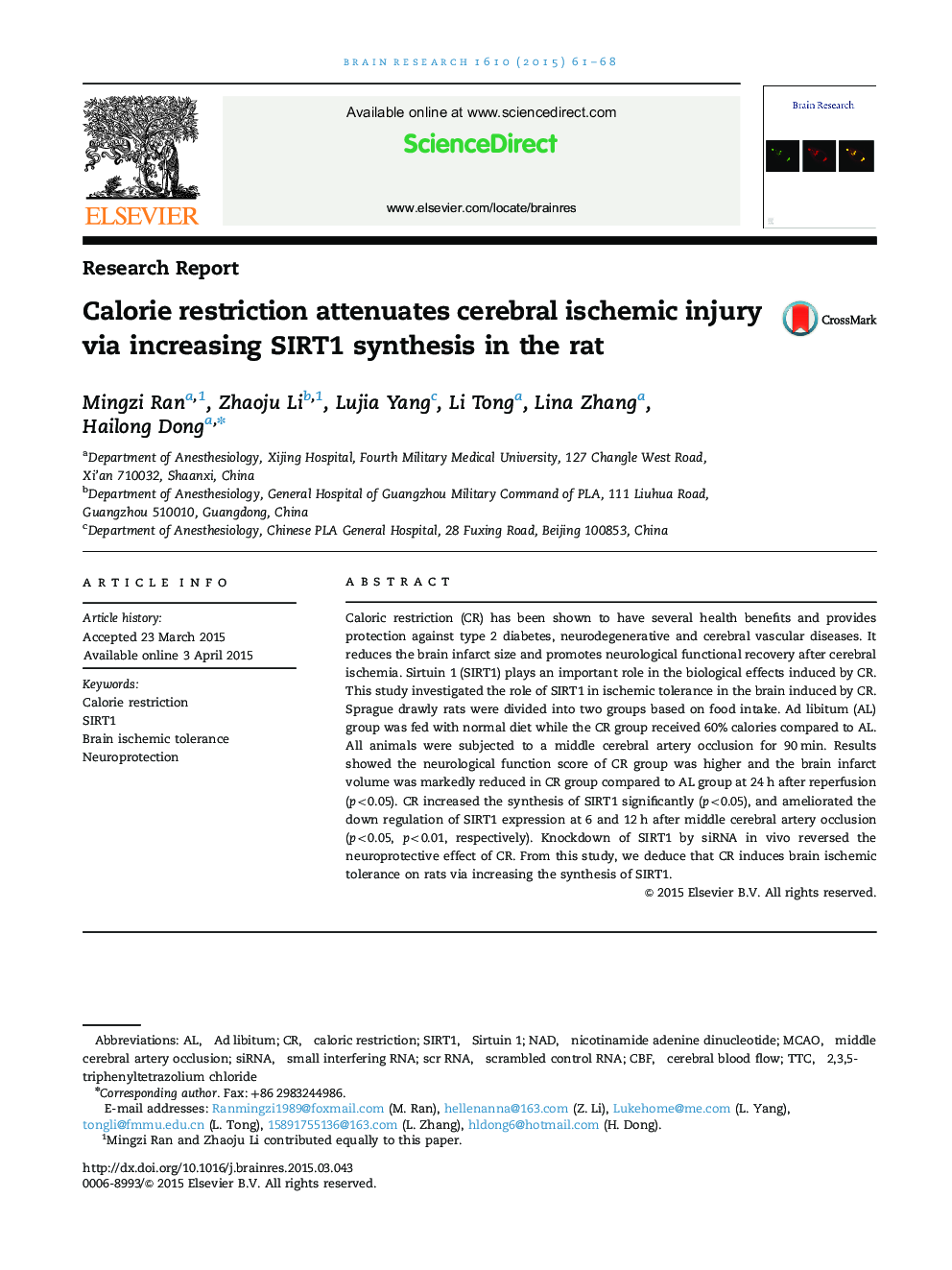| Article ID | Journal | Published Year | Pages | File Type |
|---|---|---|---|---|
| 4323808 | Brain Research | 2015 | 8 Pages |
•Caloric restriction improves neurological outcomes after brain ischemia.•Caloric restriction eases the reduction of SIRT1 induced by ischemia/reperfusion.•Down-regulation of SIRT1 by siRNA reversed the CR-induced harmful results.
Caloric restriction (CR) has been shown to have several health benefits and provides protection against type 2 diabetes, neurodegenerative and cerebral vascular diseases. It reduces the brain infarct size and promotes neurological functional recovery after cerebral ischemia. Sirtuin 1 (SIRT1) plays an important role in the biological effects induced by CR. This study investigated the role of SIRT1 in ischemic tolerance in the brain induced by CR. Sprague drawly rats were divided into two groups based on food intake. Ad libitum (AL) group was fed with normal diet while the CR group received 60% calories compared to AL. All animals were subjected to a middle cerebral artery occlusion for 90 min. Results showed the neurological function score of CR group was higher and the brain infarct volume was markedly reduced in CR group compared to AL group at 24 h after reperfusion (p<0.05). CR increased the synthesis of SIRT1 significantly (p<0.05), and ameliorated the down regulation of SIRT1 expression at 6 and 12 h after middle cerebral artery occlusion (p<0.05, p<0.01, respectively). Knockdown of SIRT1 by siRNA in vivo reversed the neuroprotective effect of CR. From this study, we deduce that CR induces brain ischemic tolerance on rats via increasing the synthesis of SIRT1.
